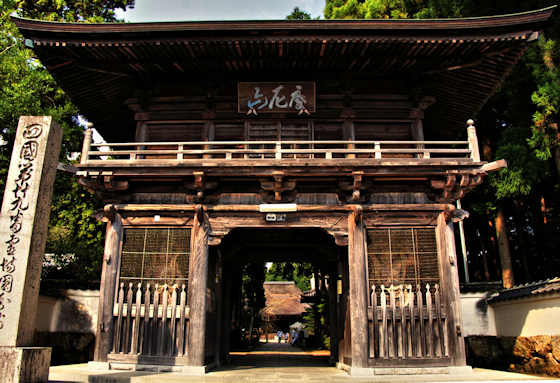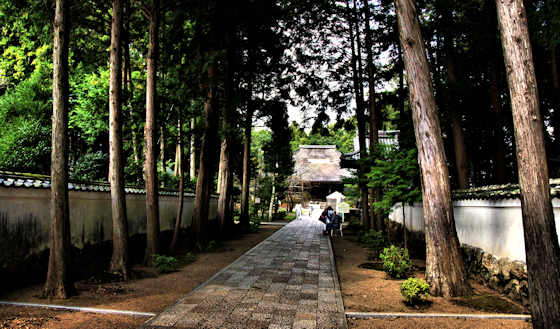Dragons are ubiquitous in Japan, often found at both Shinto Shrines and Buddhist temples. Carvings of dragons above the main door can be found at both. This one, with a rather nice eye, is at Saido-ji Temple in Esaki, Shimane.
This one, sculpted in plaster, is an example of kote-e, plaster relief art, and is on the treasure house at Anyo-ji in Omori, part of Iwami Ginzan.
Often associated with water, this fairly modern stone carving is a spigot outside one of the public onsen baths in Yunotsu, Shimane.
This carving is above the entrance to the main hall of Ichibata Yakushi temple in the mountains above Lake Shinji in Shimane.
Bronze dragons as spigots for temizuya, water basins for purification, are also very common. This one is at an Ebisu Shrine on a small island connected to the beach at low tide at Todakohama near Masuda.

















